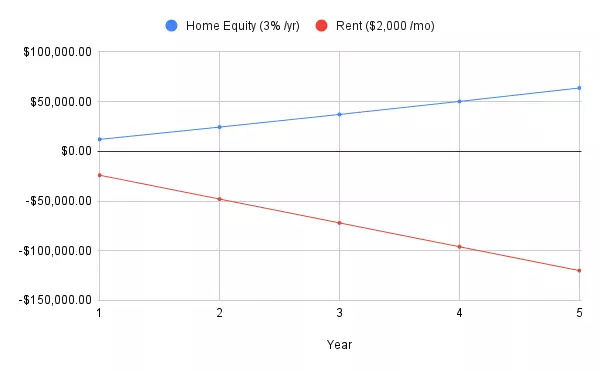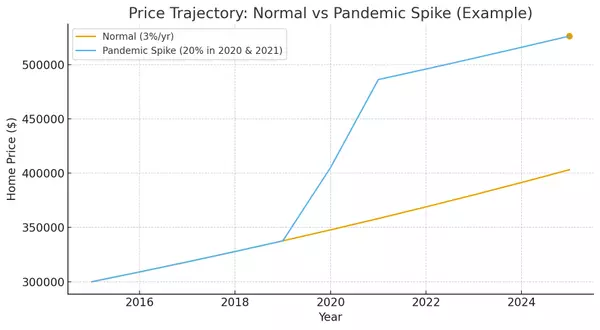Real Estate Investing 101

Investing in real estate can be one of the most rewarding ventures for those willing to put in the time, research, and effort. Whether you’re a novice looking to dip your toes into the market or an experienced investor seeking to refine your strategies, understanding the current market landscape and effective investment techniques is crucial. In this blog post, we’ll explore key strategies such as short holds versus long holds for real estate investing. We’ll also provide a market update and share essential tips for finding great deals.
👉 Search Distressed Properties for Sale
👉 Search Multi-Family Properties for Sale
👉 Search Stagnant Properties for Sale
Understanding Real Estate Investment Strategies
Short Hold Strategy
This strategy most commonly refers to flipping houses. Flipping properties involves purchasing a home at a lower price, making necessary renovations, and then selling it at a profit within a relatively short period—typically within six months to a year. This strategy requires a keen eye for undervalued properties, as well as knowledge of renovation costs and timelines.
The goal here, is to turn a profit relatively quick. Successful flippers often focus on properties in desirable neighborhoods where they can quickly increase property value through cosmetic upgrades or structural improvements.
To succeed in flipping:
1. Research the Market: Stay updated on local real estate trends, including average days on market and neighborhood appreciation rates.
2. Network with Contractors & Trades: Build relationships with reliable contractors who can help you manage renovations efficiently.
3. Budget Wisely: Always factor in unexpected expenses that may arise during renovations.
Long Hold Strategy
On the other end of the spectrum is the long hold strategy, which focuses on holding onto properties for an extended period to generate passive income. This approach can take several forms:
- Short-Term Rentals (STR): With platforms like Airbnb becoming increasingly popular, many investors have turned to STRs as a way to maximize rental income. Short-term rentals can yield higher returns than traditional leases but require more management and set-up due to frequent tenant turnover.
- Mid-Term Rentals (MTR): Similar to an STR, MTR's can yield higher returns but can be more labor intensive to set-up and maintain. Unlike an STR, these can have a tenant for around 1-3 months. Platforms like Furnish Finder target traveling nurses and corporate shorter transfers.
- Traditional Rentals: This method involves renting out properties on long-term leases (typically one year or longer). While returns may be lower than STRs, traditional rentals provide more stability and less management hassle.
- BRRRR Method: The Buy, Rehab, Rent, Refinance, Repeat strategy is ideal for investors looking to build a portfolio over time. After purchasing a distressed property and renovating it, you rent it out to generate income before refinancing it based on its new value. The cash-out from refinancing can then be used to purchase additional properties.
Other Strategies
- Room Rental: Some investors have started renting properties by the room. This can generate more profits than renting the entire house as a whole, but does involve more management. Having to consider turnover rates for each room and ensuring the home is properly set up for room by room renting.
- House Hacking: This method involves purchasing or using a home that is your primary residence to generate income. Some examples being, buying a multi-family dwelling (such as a duplex) or renting out spare room.
Real Estate News: What You Should Know
In recent months, there has been increased discussion around legislation affecting rental properties across various states. Many cities are implementing stricter regulations on STRs in response to housing shortages and rising rents. Staying informed about these changes is vital for any investor considering entering this segment of the market.
Moreover, technology continues to play an influential role in real estate investing. From virtual tours to AI-driven analytics tools that help identify lucrative investment opportunities—embracing technology can give you an edge over competitors.
Finding Deals: Tips for Success
Finding great real estate deals requires diligence and creativity. Here are some tried-and-true methods:
1. Networking: Attend local real estate investment groups or workshops where you can connect with other investors who may share leads on available properties.
2. Online Platforms: Websites like Zillow or Realtor.com allow you to set alerts for newly listed properties but have been known for not being the most reliable. Property search sites like foreclosure.com and ours at the McGarry Home Team are sure to keep you current.
3. Direct Mail Campaigns: Consider sending postcards or letters to homeowners in targeted neighborhoods expressing your interest in purchasing their property.
4. Foreclosures and Auctions: Keep an eye on foreclosure listings or attend local auctions where properties may sell below market value.
5. Work with Real Estate Agents & Wholesalers: Investor focused real estate agents and wholesalers often have access to off-market deals that could provide excellent investment opportunities.
Funding
Investment loans tend to have a higher interest rate but depending on rate of return, that usually is not a concern. Hard money loans or debit service income ratio (DSCR) loans usually have minimal qualification requirements.
In conclusion, real estate investing offers multiple avenues for generating wealth—whether through flipping houses or building a rental portfolio using strategies like BRRRR or short-term rentals. Staying informed about current market trends and regulations will empower you as an investor while helping you find lucrative deals that align with your financial goals.
Remember that successful investing takes time; continuous learning and networking will enhance your ability to make informed decisions in this dynamic field. As you embark on your real estate journey, keep these strategies close at hand—they might just lead you toward financial freedom!
Schedule a FREE consultation with us to see how we can help. Or visit our Investors page to explore more resources.
Categories
Recent Posts












